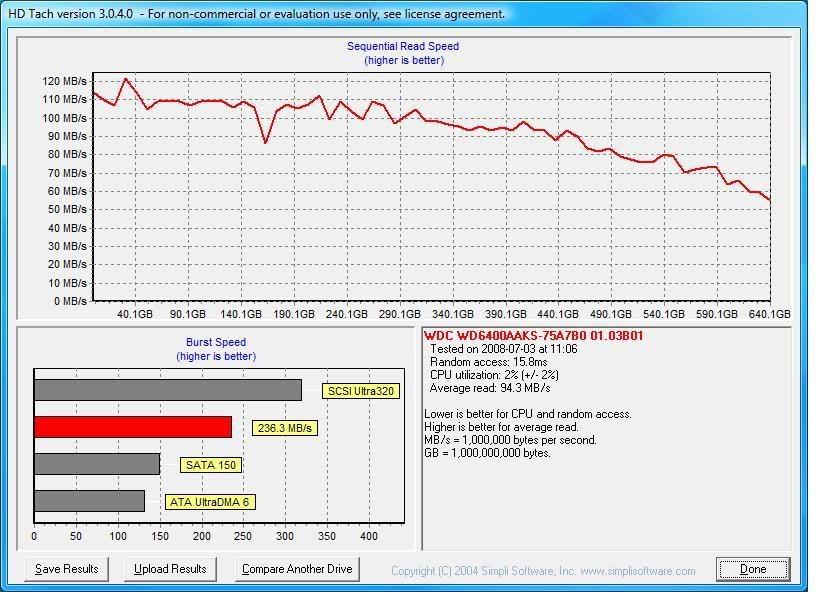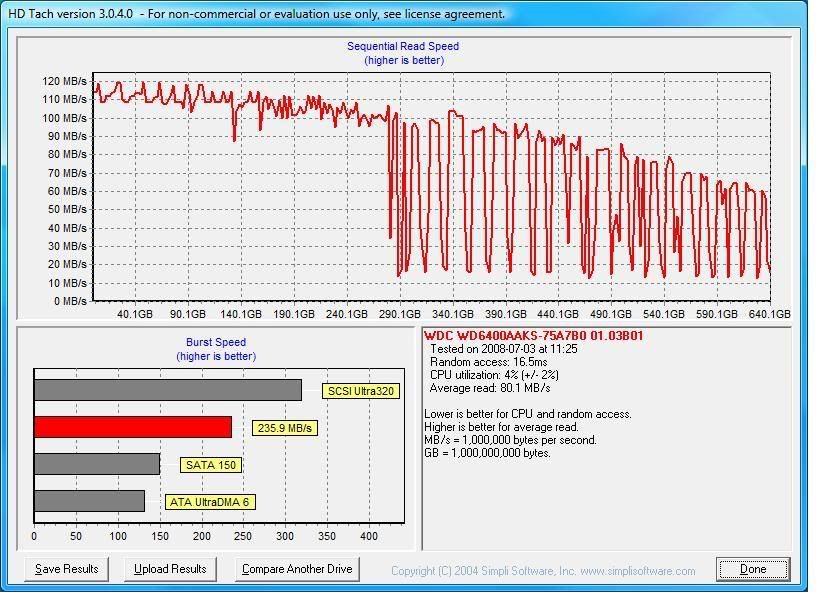You are using an out of date browser. It may not display this or other websites correctly.
You should upgrade or use an alternative browser.
You should upgrade or use an alternative browser.
Do multiple partitions slow HDD's down?
- Thread starter willhub
- Start date
More options
Thread starter's postsSoldato
- Joined
- 2 Nov 2007
- Posts
- 4,185
The contents of a hard drive have no bearing on speed, it's their position that determines speed. The outermost part of a drive is the fastest so if you create multiple partitions the first one will be quicker than the last. With or without partitions you'd be filling up the drive, partitions just allow you to separate things and put what you want to be fastest at the edge of the disk.
So if I put an OS on the last partition and first the one on the last would be quite abit slower? And having any amount of partitions then will not cause any sort of slowdown to the performance and loading of my OS?
Soldato
- Joined
- 2 Nov 2007
- Posts
- 4,185
So if I put an OS on the last partition and first the one on the last would be quite abit slower? And having any amount of partitions then will not cause any sort of slowdown to the performance and loading of my OS?
Do you mean an OS on the first partition and another on the last? Yes, the last one would be slower. Have a look at the benchmarks Here, you can see how the drive gets progressively slower. It will depend upon how things are arranged, but if you have say a 1TB drive with partitions of 5GB/990GB/5GB then there will be quite a difference between the first and last partitions. Whereas files at the beginning of the second
partition will only be fractionally slower.
Number of partitions makes no difference to speed. The positions of files on the drive and whether they are fragmented or not are the factors that affect speed.
You drive becomes a bigger bottleneck if you're accessing multiple partitions on the same drive at the same time.
Probably not that a big deal unless you're doing a lot of multitasking or partition to partition file transfers.
Probably not that a big deal unless you're doing a lot of multitasking or partition to partition file transfers.
Soldato
- Joined
- 2 Nov 2007
- Posts
- 4,185
You drive becomes a bigger bottleneck if you're accessing multiple partitions on the same drive at the same time.
Probably not that a big deal unless you're doing a lot of multitasking or partition to partition file transfers.
Good point. I/O operations within a drive are slow already because the heads need to read from one bit and write to another, with partitions this may be exaggerated further. But yeah it's fine if you're not reading and writing between partitions all the time.
Soldato
- Joined
- 2 Nov 2007
- Posts
- 4,185
I doubt you'll notice to be honest.
Indeed. If you had your pagefile on a partition at the very end of the disk or something silly like that it'd be a nuisance but just separating OS from other stuff with a partition won't make a difference.
Thats good then as I plan to install Vista and XP on this machine. Just one question since I dont want to start a new thread, if server 2008 is installed first and then vista is installed would it overwrite the bootloader and make server2008 unable to boot untill editing the boot load or is it just like installing vista twice with the bootloader recognizing em automatically?
The general rule used to be to install the oldest OS first as it may not understand the disk format used by the newer one(s). I don't know if Vista's version of NTFS is the same as XP's so I'd start with XP then Vista then S2008, just to be on the safe side.
It might also be worth considering VMWare and running the client OSs as virtual machines under S2008.
It might also be worth considering VMWare and running the client OSs as virtual machines under S2008.
Soldato
- Joined
- 2 Nov 2007
- Posts
- 4,185
I'd run Server 2008 as a virtual machine personally since it doesn't need direct access to the GPU etc. Don't know about boot.ini, Vista simply appends it does it not so if you install it after you'll get the option for both. Not like it makes a difference as it's a quick thing to fix.
How do I fix it if vista does overwrite?
I dont want S2008 in a VM, I use it as my main OS configured as a workstation, it is faster.
Just tested my HDD with AAM disabled using HDTach, and the seek time is still 15.8ms , bit slow is it not?
, bit slow is it not?

here is the long test:

I dont want S2008 in a VM, I use it as my main OS configured as a workstation, it is faster.
Just tested my HDD with AAM disabled using HDTach, and the seek time is still 15.8ms
 , bit slow is it not?
, bit slow is it not?
here is the long test:


Last edited:

